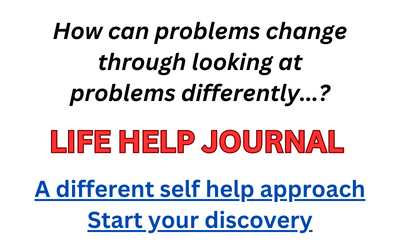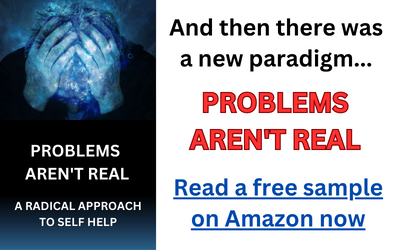Many people who experience depression and anxiety, especially where it happens on a regular basis, accept two beliefs: first, that to have depression, anxiety, and other emotional dis-ease represents something abnormal and / or a failure, and that to feel happy and content represents normalcy and success; second, that when emotional dis-ease is in place it needs to be corrected or fixed… and the faster the better.
They may hold these beliefs subconsciously, but typically they are in place at some level. These beliefs however are unrealistic, inaccurate, and very damaging.
In fact everyone — even Zen masters and other experts in emotional balance — experiences the energy of down moods. The experience of down moods is absolutely needed if there is to be an experience of happiness. If there was nothing but happiness, it wouldn’t be happiness: it would be something like monotony. Or as spiritualist Eckhart Tolle put it, if everything was blue there would be no blue.
Instances of down moods allow us to know what happiness actually is. This life experience gives us the opportunity to know and understand contrasts: birth and death, pleasure and pain, and so on. In our spirit home there is only bliss and we have a far greater understanding, and appreciation, for what bliss is after we come home from our trip called life.
Emotional dis-ease then is not wrong or bad or some form of failure: it is necessary, and thus is a normal part of existence. Let me state this again for emphasis: emotional dis-ease is not an anomaly or some kind of bad luck — it is part of the normal standard (and so is physical dis-ease for that matter).
The dis-ease does not represent a problem; what is a normal part of existence cannot be a problem. The problem, in reality, is our mental response to dis-ease.
I mentioned masters of emotional balance earlier in this writing. Where they differ from the rest of us is not having an absence of dis-ease; where they differ is in their response to dis-ease. Many of us become highly upset about dis-ease and want to see it quickly banished; masters of emotional balance, on the other hand, take dis-ease in stride: they take note of it, consider it to be the normal phenomenon that it is, and simply accept it.
But isn’t this extending pain and suffering? Typically no, believe it or not. Resistance often hardens dis-ease and holds it in place. Even when this is not the case resistance of dis-ease, and resistance of life in general, leads to emotional suffering.
I don’t want this! This isn’t fair! No, no, no!
Acceptance, on the other hand, brings one into alignment with the flow of life and dis-ease can move along with this flow. This is why, within spiritual dialogue, it is often said that the most effective means for bringing change is to accept what is unequivocally.
What does this mean exactly?
When life is allowed to flow it does, and circumstances can and do change — often for the better and often with very little effort. When we resist life we push against it and everything becomes stuck. When we stop resisting the flow of life resumes.
This is not to say that we should never take action — taking reasonable and appropriate action is perfectly fine, but don’t be in resistance to what is when taking action. Say yes to what is, not no, when there is action. And if there’s no reasonable and appropriate action to take then simply accept whatever presently is.
From this comes peace and often change as well. Try it for yourself and see what the results are.
The next time there is depression and / or anxiety take note of it and then accept it — let it be there, be with it, accept it as a normal part of the living experience. Do not resist it or attempt to suppress or change it.
See what happens…

